Kathy Tu and Tobin Low's new podcast Nancy introduces them as "BFFs" who are engaged in "provocative stories and frank conversations about the LGBTQ experience today."
Sitting side-by-side, at the WNYC Studios office in Lower Manhattan, they are jocular and tender with one another. They met several years ago at the Transom Story Workshop, which Low describes as being for "people who are making a hard left in their career towards being radio producers." He continues, "We met at a time where we both blowing up our lives, and making a turn for radio."
Tu lives in Los Angeles and records her Nancy segments in her closet. Low records from the WNYC Studios office, where he was an intern just a few years ago, ripping CD's full-time in a booth down the hall from the newsroom. The results of Tu and Low's bi-coastal contributions are heartfelt and hilarious, demonstrated by the first episode, which features their respective parents as their first guests.
The duo chose to start the podcast with each of their coming out stories, markedly different in tone. Low's story includes funny details about his father's obsession with Queer Eye For The Straight Guy. On the other mic, Tu analyzes having to continually come out to her mom. "Maybe part of the problem was that I'd been approaching it as an announcement rather than a conversation," she reflects.
OUT is pleased to announce exclusive previews of this dynamic new podcast. Listen to both, and learn more about hosts Kathy Tu and Tobin Low in our conversation, below.
Kathy and her Mom:
Tobin and his Dad:
OUT: When did you realize Nancy was the right name for the podcast?
Tobin Low:We had been going through a bunch of name options and the names used to be more on the nose. We did a couple of gay puns, [but] none of them felt right. If you use a pun that has gay in the title, we felt like that was exclusive if we're trying to bring in as many people as we can. Gay didn't feel right.
Kathy Tu:It doesn't necessarily have to default to gay to mean queer.
Low: Right. There was a moment where we were pitching so many names, and I as a joke [said], "Let's just name it after a person." Nancy is sort of a nod to an old-school term for a gay man, so there's that nod to the culture and to this historical aspect, but mostly it's just irreverent.
Your parents are your first guests, how did you describe Nancy to them?
Tu: I recently just explained to my mom. I didn't know for this long that she didn't know what a podcast was. She listens to the radio a lot, AM Chinese radio. I thought she would know what a podcast was, but two months ago is when she finally understood what I do. She kind of thinks I'm doing an internship in New York. I've tried to explain it to her, she doesn't quite get it. She's like, "You're going to learn something and then get a real job, right?"
Low: That's why we're trying to get Kathy into one of the Chinese newspapers that her mom reads. Then it will be real. As soon as the show got greenlit, my mom has pitched us 50 guests. [Laughs] Anytime she reads anything that has even a remote mention of a queer person I get an email that's like, "You should interview this person!"
There's a moment on the first episode when Tobin deadpans, "I love being typecast in my own life." How is creating your own platform a way to buck typecasting?
Low:There's been a lot of amazing queer storytelling in the podcasting radio space. The sheer amount of stories we get to tell is one of the most exciting parts of it, and will work towards this bucking of having one story need to speak for the entire queer community.
The fact that we're both Asian American, and it's the two of us in conversation, there are things that would be talking points in another space. If we're having a conversation about coming out to immigrant parents I'm not going to say, "Oh, that must be so hard."
There are certain things that I get, and that means that [Tu] has the space to get into the actual nuances without having to explain what a language barrier means, or value systems that are different. Without naming it and being explicit about that, it's a thing that you get just by hearing our conversations.
Tu:Some of my favorite times [are] when I'm trying to describe an experience and Tobin already gets it, like the Chinese newspaper thing, which I thought nobody would get. It's nice to have that space and support.
Who would be a dream podcast guest for each of you?
Low:The one person I've been talking about a lot lately is BD Wong.
Tu:Love a good BD Wong.
Low:I was watching Jurassic Park again and I was like, "Oh right. BD Wong is in this." Then there was like three other things that I watched in succession like, "BD Wong is in this!" This is amazing, this gay Asian man has been around forever. He's one of those people who you take for granted and then are suddenly like, "Oh my god, BD Wong. What a fucking badass."
Tu:[Laughs] I just really want to talk to Betty White. She's my dream person. I know that she's not gay, but she plays a huge role in a lot of gay people's lives, in the form of Golden Girls.
What can we expect for the rest of the first season?
Low: We have so many more stories, also interviews. Some things we're talking about are Asian American representation in porn. I go on a search for the first Asian porn star. We have a story that dives into what it's like to be a Republican LGBT activist, which I was only tangentially aware they even existed. Part of it is diving into what it's like for them, and also to try and foster some understanding of where they're coming from and what they're thinking about, especially with this current administration. We have an amazing conversation with Shakina Nayfack, an incredible trans cabaret artist.
We also have a bunch of really amazing intergenerational conversations. We had a friend of ours in his sixties [who] has been HIV positive since the eighties. He came to us and said, "I have no idea what someone in their twenties who is HIV positive thinks or feels about this." We paired him up with someone who is in their twenties, who is HIV positive, and had them talk about how their experiences were similar, how they were different. It turned into this really beautiful conversation.
Writing can be an entry point into difficult conversations with family. How did you approach writing the "coming out" segment for Nancy?
Low:Both of us have been sitting on that tape for a long time. We started from a place of both recording with our parents and not really knowing what it was going to be. I think radio producers have this instinct of, "This is going to be a really hard conversation, I should probably record it!" [Laughs] I think there's something about making stories out of them that help you process what's in the tape.
Tu: I also like that recording it and releasing it to the public hopefully helps other people have their conversations. Hopefully other people can see that conversations have to happen for anything to move forward. I think it's the most organic way for everybody to get to know the two of us, through our coming out stories. I like starting at the coming out story, because most stories end at coming out. Ours start at coming out, and move onwards from there.
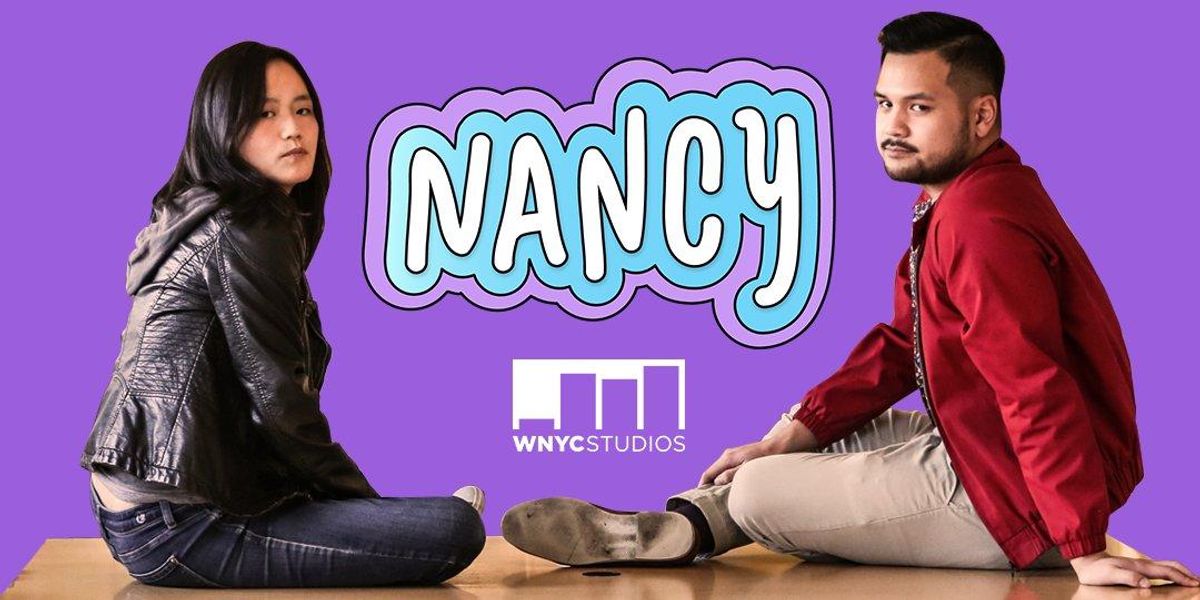




































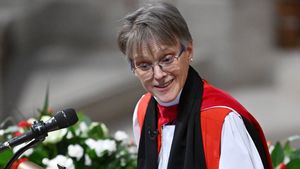









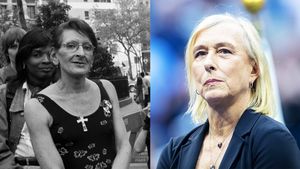





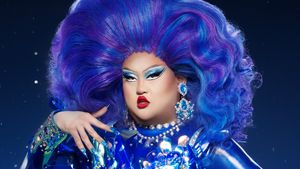



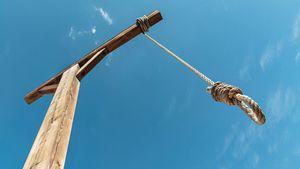
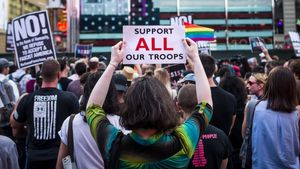

























Trans woman challenges transphobic Trump order in court